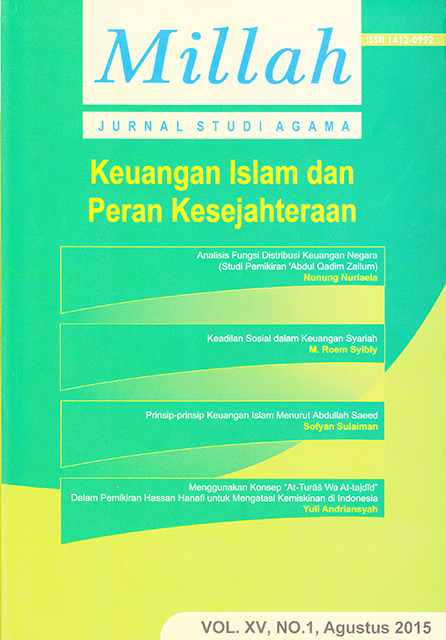Main Article Content
Abstract
In the late 60s to early 70s, was born a consensus of Islamic law and economic experts who say that the interest in the banking system is part of usury, so the banks are not in accordance with the Islamic Shari’ah. As an alternative, the experts offer free banking model of the system of interest, with the concept of profit and loss sharing (PLS). However, the presence of Islamic banking bore the pros and cons among Muslim scholars. Among the leaders of the cons is Abdullah Saeed. This article discusses the thinking Abdullah Saeed who criticize the interpretation of usury and interest, the principle of PLS (mudarabah and loss), and the principle of sale (murabaha). The criticism is: (1) He said, usury is forbidden because of the exploitation of the poor, while the interest there is no element of exploitation so that interest is not included in the category of usury. (2) A number of requirements in practice only to protect banking PLS. So what happens is sharing the results, but do not share the risk. (3) Further Saeed see that Islamic banking is not better than conventional banking. Because in fact, the practice of Islamic banking also implement a “model of financial transactions such as interest” ie Murabaha. Murabaha profit are uncertain and affected by time, not much different from the concept of interest reproach.
Article Details
Authors retain copyright and grant the journal right of first publication with the work simultaneously licensed under a Creative Commons Attribution (CC-BY-SA) 4.0 License that allows others to share the work with an acknowledgment of the work’s authorship and initial publication in this journal.




